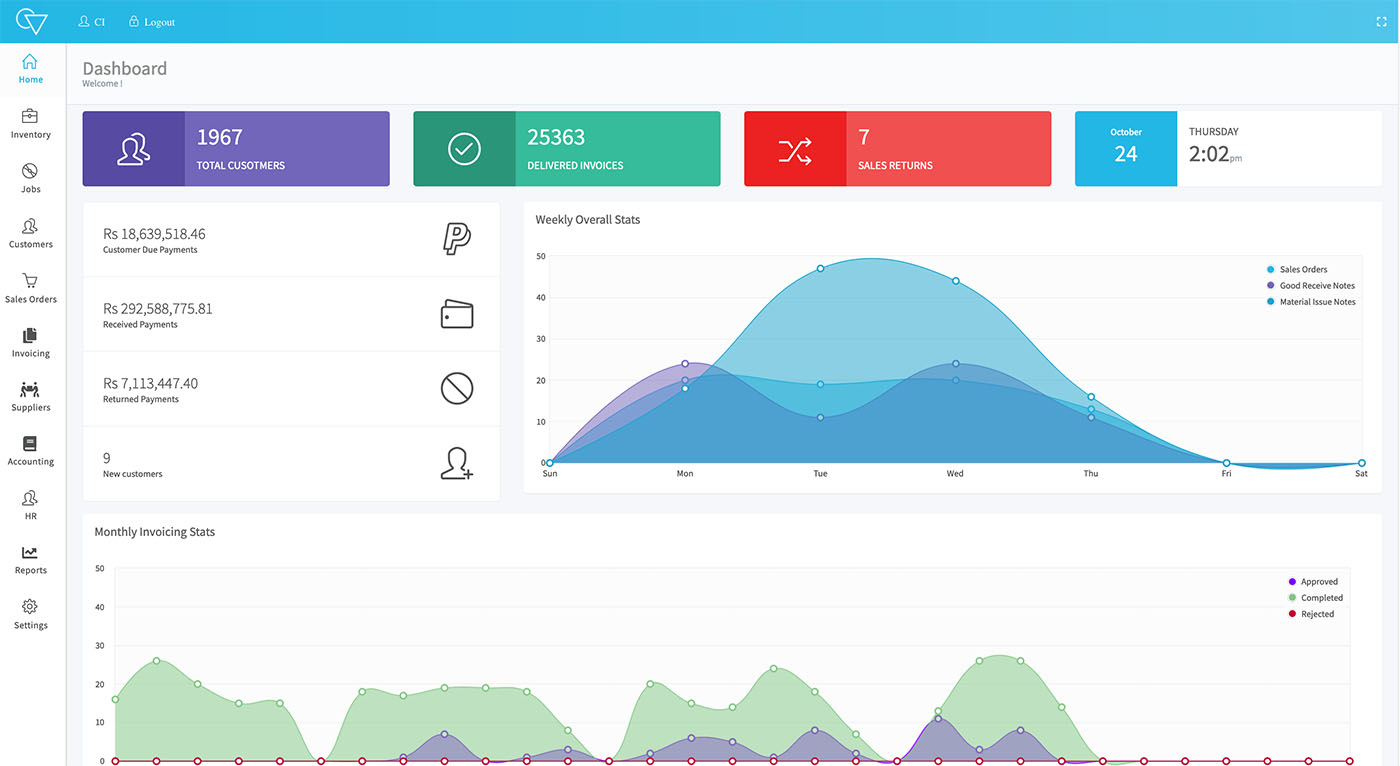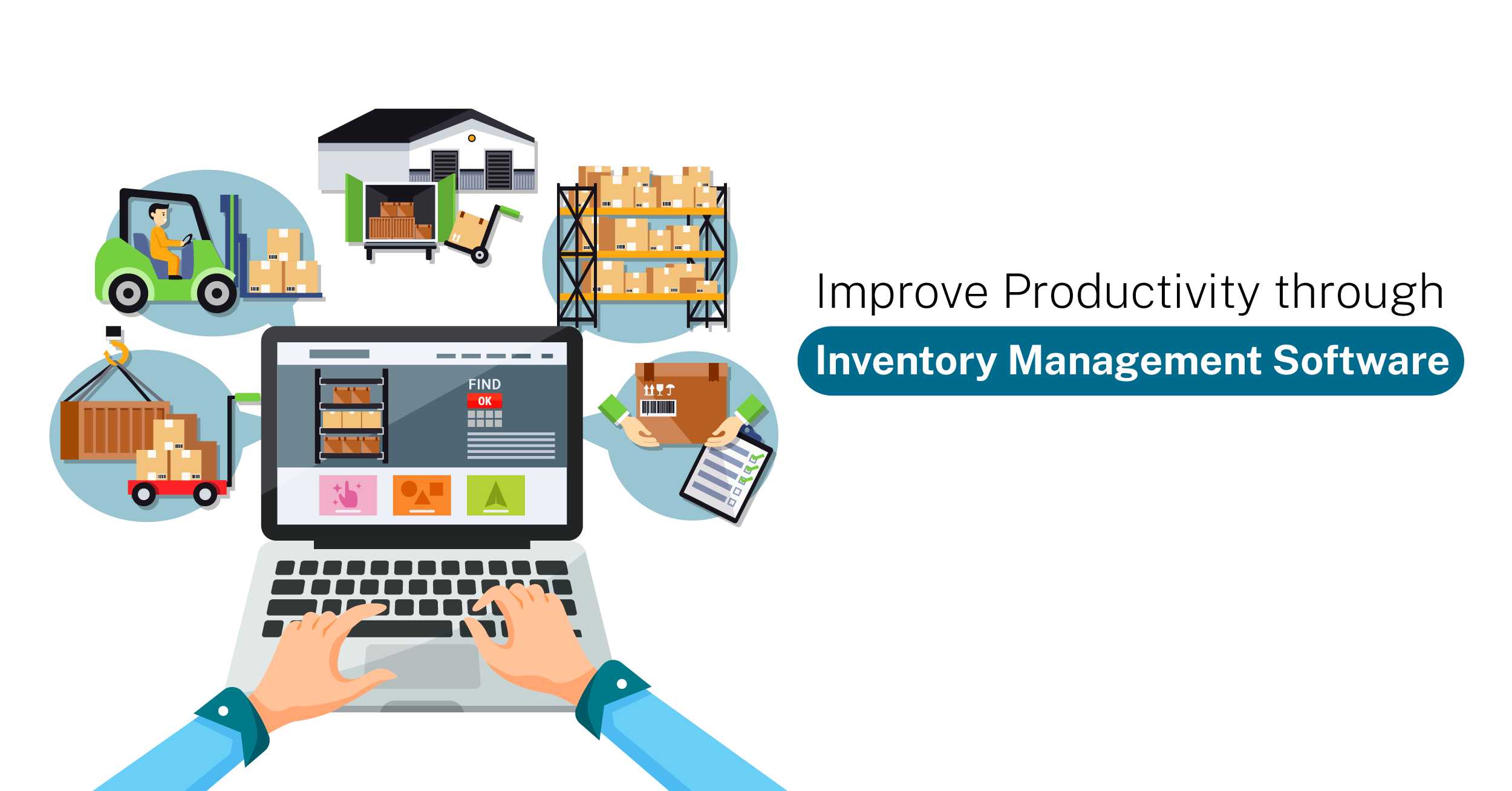Cloud-based inventory management system for small business – In the realm of small business, cloud-based inventory management systems are emerging as game-changers, offering a seamless and efficient way to manage inventory and streamline operations. With real-time tracking, automated replenishment, and multi-location capabilities, these systems empower small businesses to gain control over their inventory, reduce costs, and enhance customer service.
As we delve into the world of cloud-based inventory management, we will explore its key features, benefits, and challenges, providing insights and guidance to help small businesses make informed decisions about implementing these systems.
Overview of Cloud-Based Inventory Management Systems
Cloud-based inventory management systems are software solutions hosted on remote servers and accessed over the internet. They offer several advantages over traditional on-premise systems, including:
- Real-time inventory tracking: Cloud-based systems provide real-time visibility into inventory levels, enabling businesses to track stock levels and make informed decisions.
- Increased accuracy: Automated data entry and centralized data storage reduce errors and improve inventory accuracy.
- Cost savings: Cloud-based systems eliminate the need for hardware, software, and IT maintenance, reducing costs.
- Scalability: Cloud-based systems can easily scale up or down to meet changing business needs.
- Improved collaboration: Cloud-based systems allow multiple users to access and update inventory data in real-time, enhancing collaboration.
Popular Cloud-Based Inventory Management Systems
Some popular cloud-based inventory management systems include:
- Zoho Inventory: A comprehensive inventory management system with features such as multi-location inventory tracking, order fulfillment, and reporting.
- Shopify: An e-commerce platform that includes inventory management features for online businesses.
- QuickBooks Online: An accounting software that includes inventory management capabilities.
- NetSuite: An enterprise resource planning (ERP) system that includes robust inventory management functionality.
- Fishbowl Inventory: A specialized inventory management system designed for manufacturers and distributors.
Features of Cloud-Based Inventory Management Systems
Cloud-based inventory management systems offer a wide range of features that can streamline inventory management processes for small businesses. These features include:
Real-time inventory tracking
Real-time inventory tracking provides businesses with up-to-date information on their inventory levels. This information can be accessed from any device with an internet connection, allowing businesses to track their inventory levels in real time. This can help businesses avoid stockouts and overstocking, which can lead to lost sales and increased costs.
Automated inventory replenishment
Automated inventory replenishment can help businesses save time and money by automating the process of reordering inventory. When inventory levels reach a certain threshold, the system can automatically generate a purchase order and send it to the supplier. This can help businesses ensure that they always have the inventory they need on hand, without having to manually track inventory levels and place orders.
Multi-location inventory management
Multi-location inventory management allows businesses to track inventory levels across multiple locations. This can be helpful for businesses with multiple warehouses or retail stores. With multi-location inventory management, businesses can easily transfer inventory between locations to meet demand. This can help businesses avoid stockouts and overstocking at different locations.
Benefits of Cloud-Based Inventory Management Systems for Small Businesses
For small businesses, implementing a cloud-based inventory management system can bring a multitude of advantages. These systems not only enhance inventory management efficiency but also provide tangible benefits that can significantly impact business operations.
Improved Inventory Accuracy
Cloud-based inventory management systems leverage real-time data updates to provide a precise and up-to-date view of inventory levels. This eliminates the risk of overstocking or understocking, ensuring that businesses always have the right amount of inventory on hand to meet customer demand. Accurate inventory tracking also helps businesses identify slow-moving items and optimize their purchasing strategies.
Reduced Inventory Costs
By optimizing inventory levels and minimizing waste, cloud-based inventory management systems can help small businesses reduce their inventory costs. Accurate inventory data enables businesses to make informed decisions about purchasing and stocking levels, preventing overstocking and associated storage costs. Additionally, these systems provide insights into inventory turnover rates, allowing businesses to identify and eliminate non-performing items that tie up valuable capital.
Enhanced Customer Service
Real-time inventory visibility empowers small businesses to provide exceptional customer service. With accurate inventory information at their fingertips, businesses can quickly and confidently respond to customer inquiries about product availability, estimated delivery times, and order status. This enhanced transparency builds trust and loyalty with customers, leading to increased customer satisfaction and repeat business.
Challenges of Implementing Cloud-Based Inventory Management Systems
Implementing cloud-based inventory management systems can bring significant benefits to small businesses, but it’s essential to be aware of potential challenges.
One major concern is data security. Cloud-based systems rely on internet connectivity, which can introduce vulnerabilities to cyber threats. Businesses must ensure that their chosen provider has robust security measures in place to protect sensitive inventory data.
Integration with Existing Systems
Integrating a cloud-based inventory management system with existing business systems can be complex. Different systems may use incompatible data formats or have varying levels of functionality, requiring extensive customization or integration efforts.
Lack of In-House Expertise
Implementing and managing cloud-based inventory management systems requires technical expertise that small businesses may not possess in-house. This can lead to difficulties in setup, configuration, and ongoing maintenance, potentially affecting the system’s effectiveness.
Choosing the Right Cloud-Based Inventory Management System for Small Businesses

Choosing the right cloud-based inventory management system is crucial for small businesses. Consider the following factors:
Business Size and Industry
Small businesses with simple inventory needs may opt for basic systems, while those with complex inventory or multiple locations may require more advanced features.
Inventory Complexity
The number of SKUs, product variations, and storage locations impact system requirements. Systems should accommodate inventory complexity and provide real-time visibility.
Budget Constraints
Cloud-based systems offer flexible pricing models. Small businesses should evaluate costs, including subscription fees, implementation expenses, and ongoing support.
Best Practices for Using Cloud-Based Inventory Management Systems

To maximize the effectiveness of cloud-based inventory management systems, it’s essential to adhere to certain best practices. These practices ensure accurate inventory tracking, efficient operations, and cost optimization.
The following best practices provide guidance for small businesses:
Setting Up Inventory Parameters
Configure inventory parameters meticulously to align with your business needs. Determine appropriate stock levels, safety stock thresholds, and reorder points. These parameters will guide the system in generating accurate stock alerts and preventing stockouts or overstocking.
Training Staff on the System
Provide comprehensive training to staff members who will be using the inventory management system. Ensure they understand how to navigate the system, manage inventory levels, and generate reports. Proper training empowers staff to leverage the system effectively, minimizing errors and maximizing efficiency.
Monitoring Inventory Levels Regularly
Establish a regular schedule for monitoring inventory levels. This allows you to identify potential stockouts or overstocking issues early on. Proactive monitoring enables you to adjust inventory levels promptly, ensuring optimal stock availability and preventing costly disruptions.
Case Studies of Small Businesses Using Cloud-Based Inventory Management Systems

Cloud-based inventory management systems have transformed inventory management for small businesses, providing numerous benefits and streamlining operations. Here are a few case studies showcasing the successful implementation of these systems in small businesses:
Case Study: ABC Retail Store
ABC Retail Store, a small clothing boutique, faced challenges with manual inventory tracking, leading to stockouts and overstocking. By implementing a cloud-based inventory management system, they gained real-time visibility into their inventory levels, enabling them to optimize stock levels and reduce losses due to stockouts.
Case Study: XYZ Manufacturing, Cloud-based inventory management system for small business
XYZ Manufacturing, a small-scale manufacturer, struggled with inventory accuracy and inefficient production planning. By adopting a cloud-based inventory management system, they improved inventory accuracy by 95%, streamlined production planning, and reduced lead times by 20%, leading to increased customer satisfaction and reduced production costs.
Case Study: PQR Distribution
PQR Distribution, a small distribution company, faced challenges with managing inventory across multiple warehouses. By implementing a cloud-based inventory management system, they gained a centralized view of their inventory, enabling them to optimize distribution routes, reduce shipping costs, and improve customer service by providing real-time inventory updates.
Closure: Cloud-based Inventory Management System For Small Business
Cloud-based inventory management systems are revolutionizing the way small businesses manage their inventory. By embracing these systems, small businesses can unlock a wealth of benefits, including improved accuracy, reduced costs, enhanced customer service, and a competitive edge in today’s dynamic market.
While challenges may arise during implementation, careful planning, vendor selection, and ongoing support can help businesses overcome these obstacles and reap the rewards of a streamlined and efficient inventory management process.
Top FAQs
What are the key benefits of cloud-based inventory management systems for small businesses?
Cloud-based inventory management systems offer numerous benefits for small businesses, including improved inventory accuracy, reduced inventory costs, enhanced customer service, and increased efficiency.
What are some common challenges of implementing cloud-based inventory management systems?
Common challenges include data security concerns, integration with existing systems, and lack of in-house expertise. However, careful planning and vendor selection can help mitigate these challenges.
How can small businesses choose the right cloud-based inventory management system?
To choose the right system, consider factors such as business size and industry, inventory complexity, and budget constraints. Research different vendors, read reviews, and seek recommendations from other small businesses.